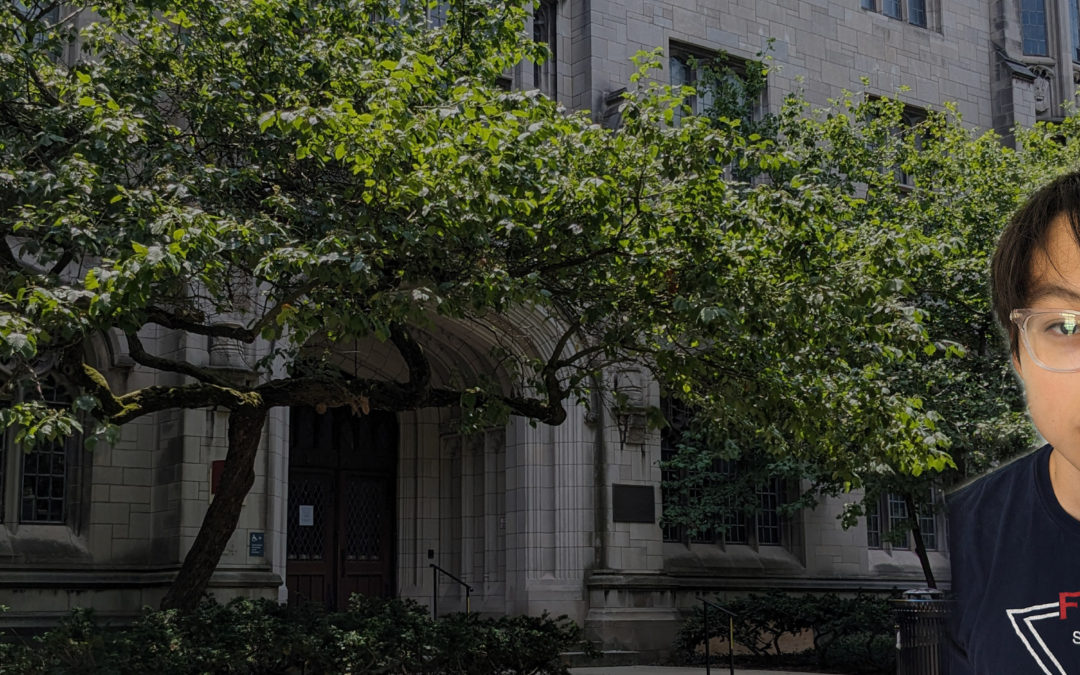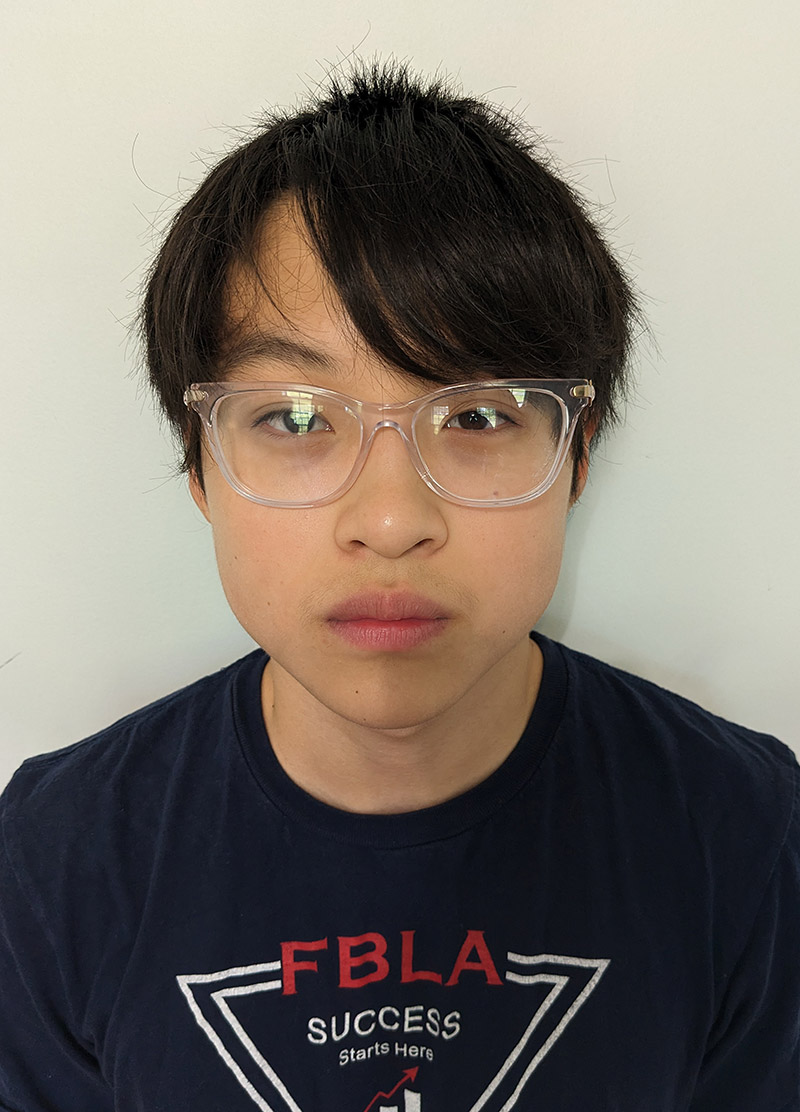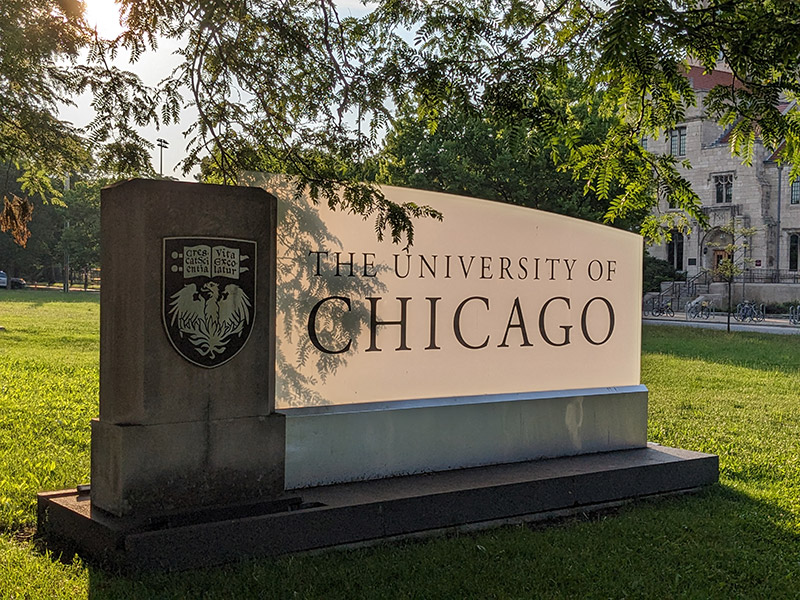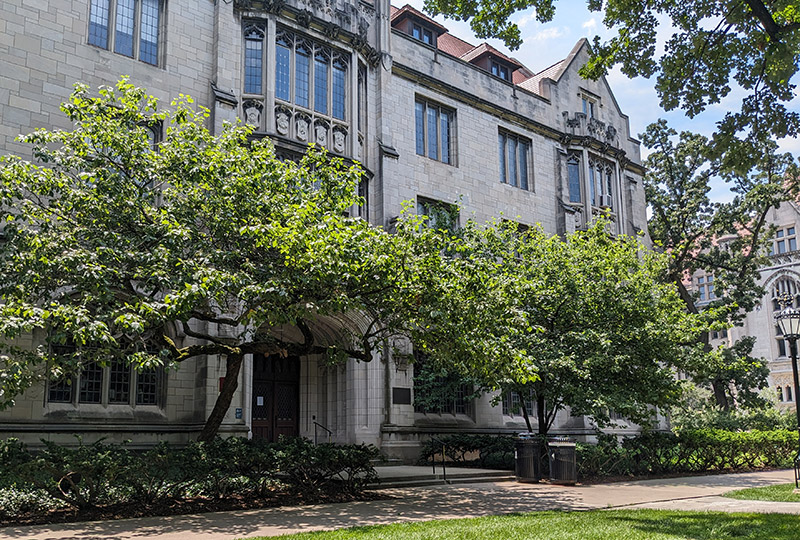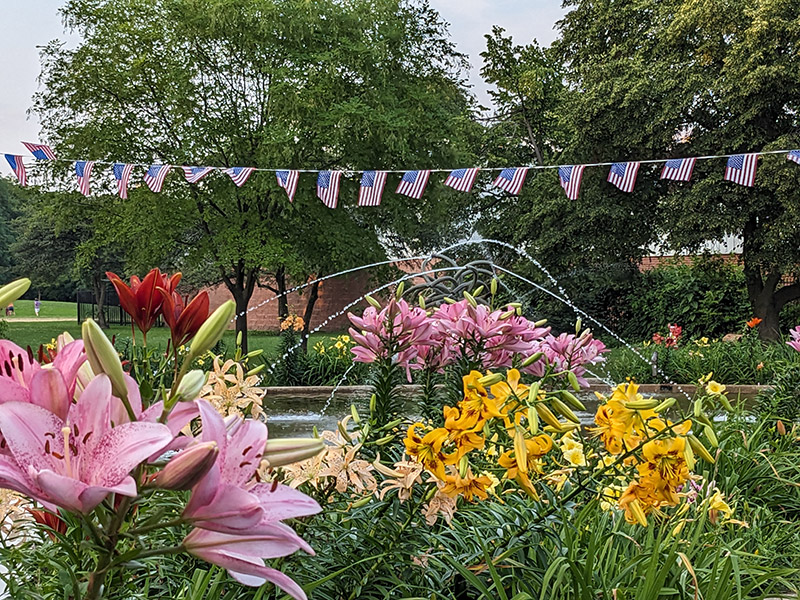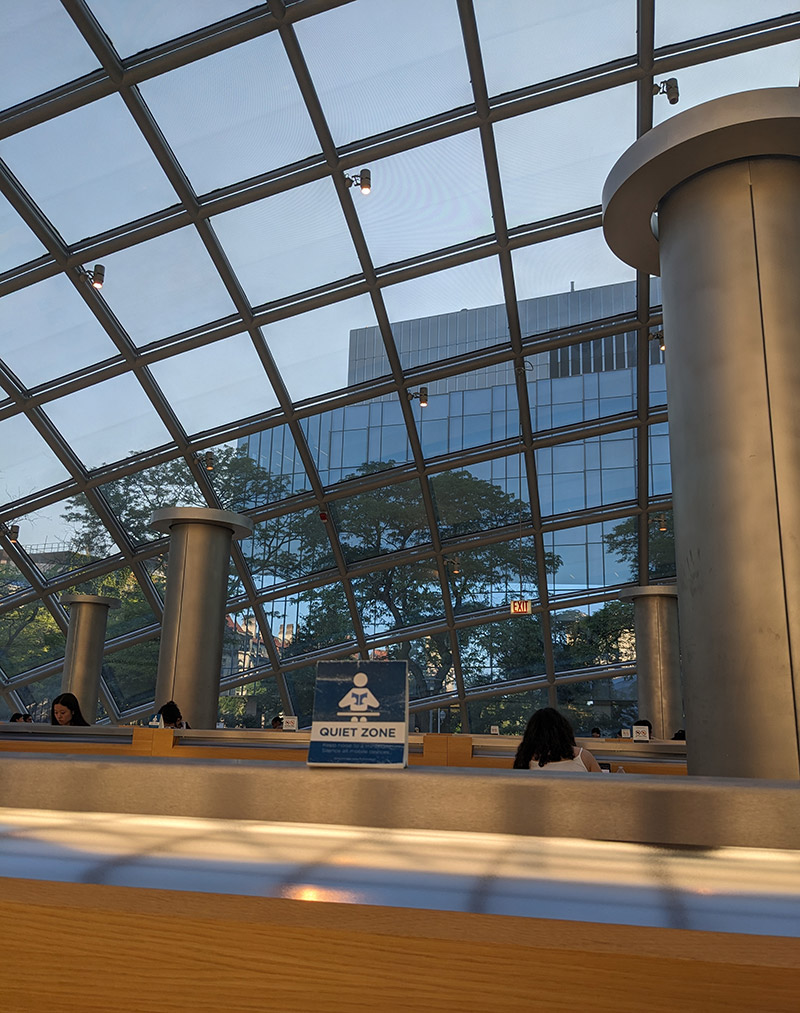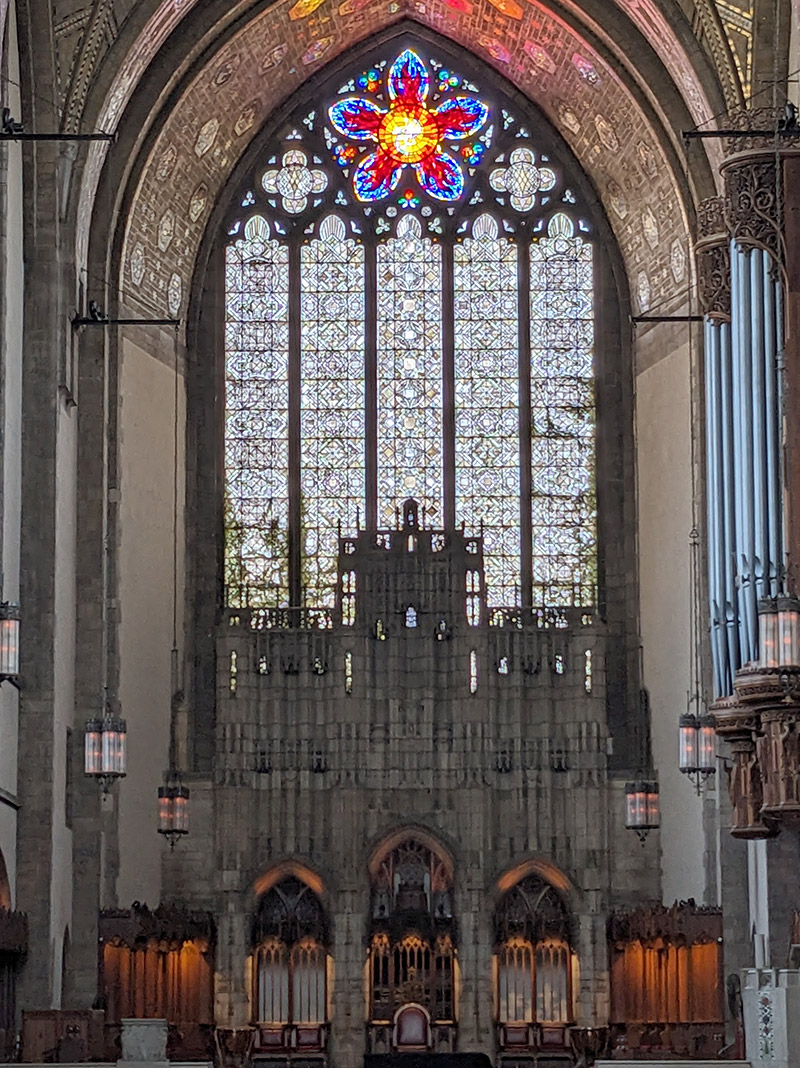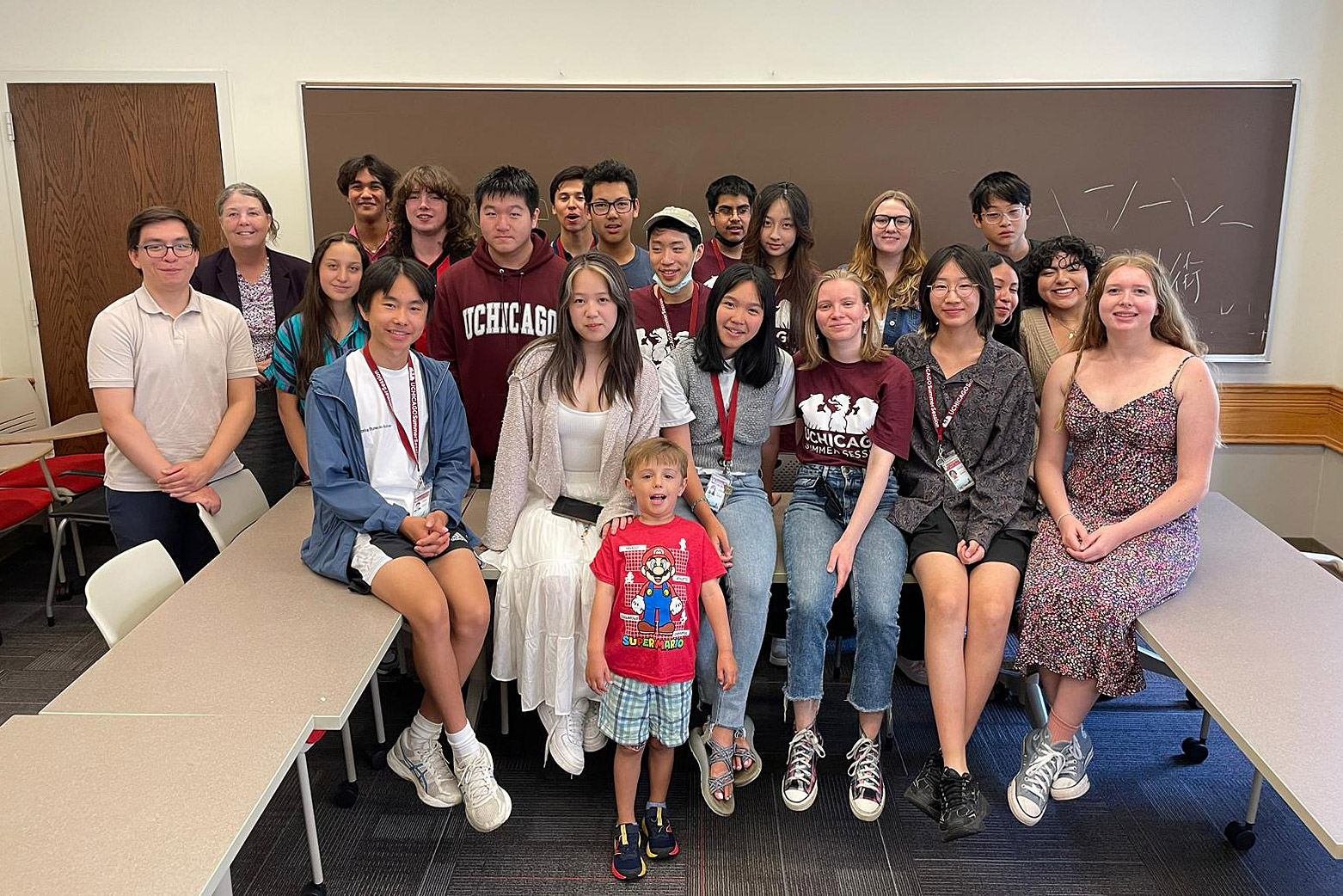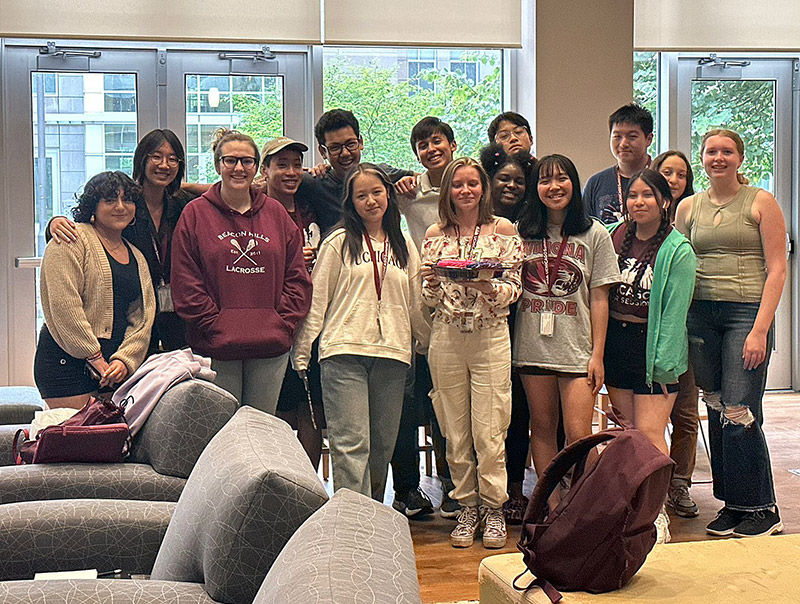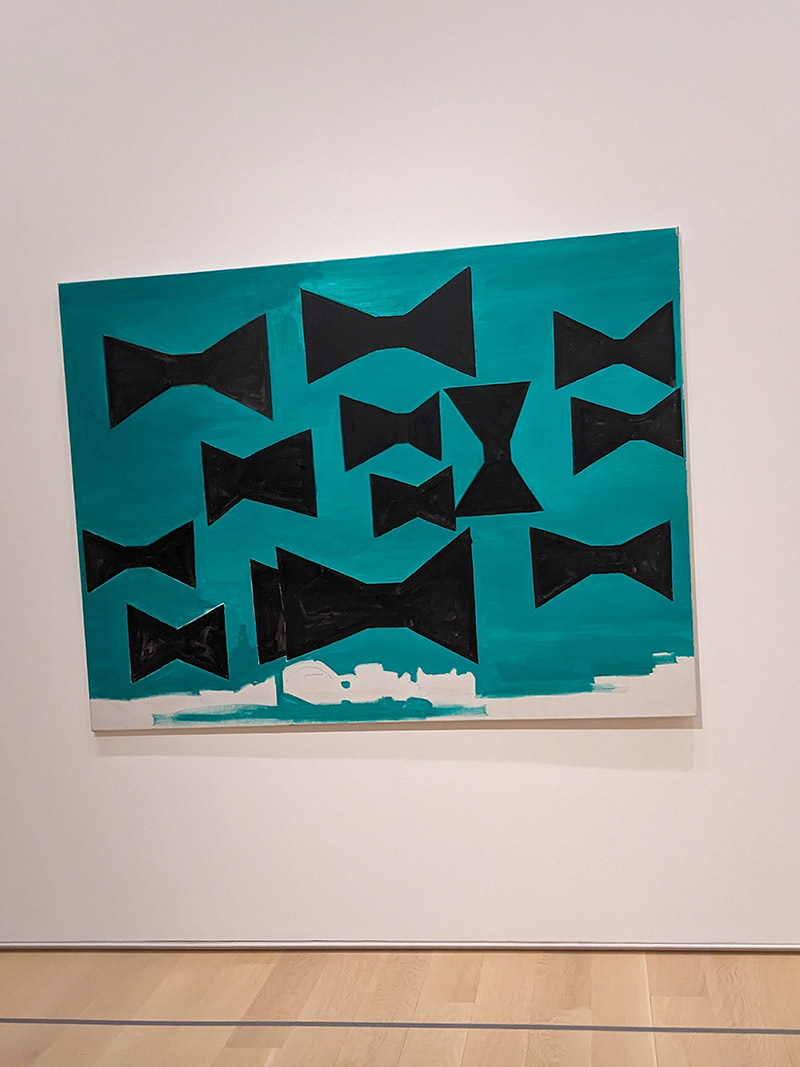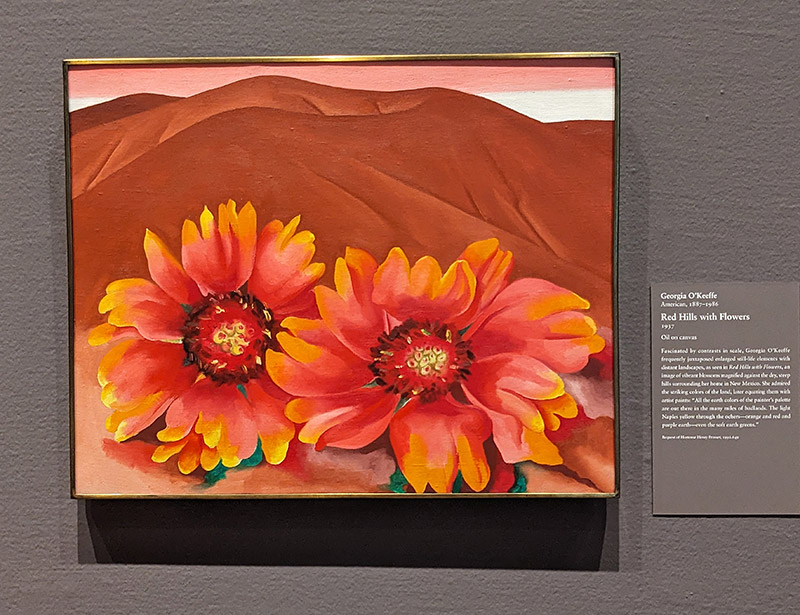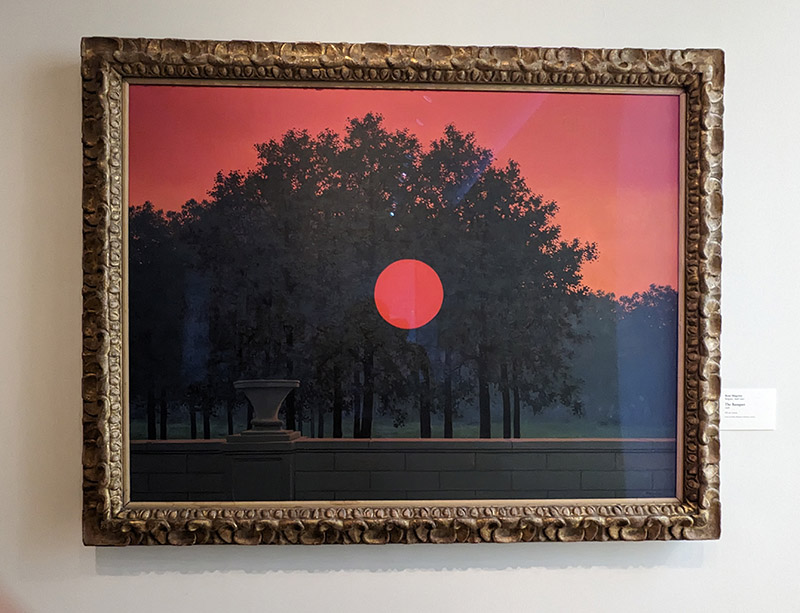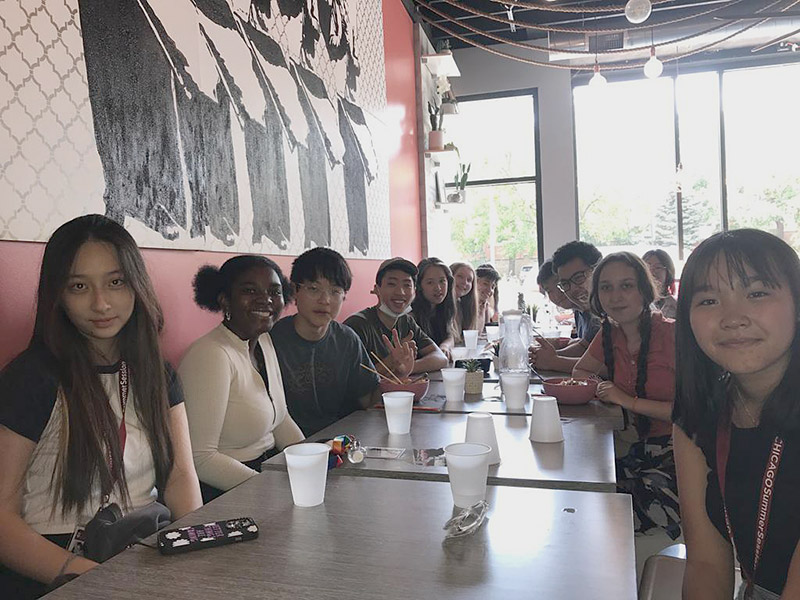David Weng reports on his experiences at the University of Chicago where he is studying “Communicating Effectively: Free Expression, Civic Argument, and Public Advocacy.” David spent his first week settling in, exploring the campus, and meeting new people. He has been “enthralled with the program,” including the “stunning architecture, welcoming environment, and thought-provoking coursework.”
David reports that the 3-week condensed undergraduate course, taught by Dr. Brammer through the Parrhesia Program for Public Discourse, resembles a public speech course. “The art of persuading is quite troublesome to describe to a beginner, as there are always exceptions to every rule. While one would expect a list of criteria that most speakers need to meet, surprisingly, the opposite is true, with differing situations needing varying deliveries. Examples of famous speeches that had widespread influence are analyzed here, with Dr. Brammer guiding the class into coming up with our own conclusions. In helping us absorb the content, readings are assigned daily from ancient authors such as Aristotle and Cicero, discussing topics one could expect to pop up in discussions.” David says.
In the afternoons, students work on assigned projects, receive guidance from teaching assistants, and participate in joint sessions. “So far, these joint sessions have included Dr. Brammer laying out the framework of public discourse and a Ph.D. student outlining his research on the internet conspiracy theory QAnon. I find these sessions even more engaging than the class, as they help me understand a topic more deeply or spot a novel application of the theory learned in practice,” David reports.
David finds studying in the various libraries at University of Chicago is more productive than studying in his room, and has been enjoying the architecture on campus. “Exploring these libraries has revealed to me the beautiful architecture, with each building being grand in its own way. This fact is especially evident with a stroll through the Main Quadrangle, a collection of buildings where most classrooms reside. Other notable sites include idyllic parks and a colorful cathedral, both of which showcase the tremendous effort and care that went into designing the campus,” David says.
“A little bit less than two weeks remain with my time here at UChicago, so to fully maximize this opportunity, a couple of goals that I have for the following week include participating more during class discussions, finding the time to go on more frequent trips with friends, and following the good habits that I have already established. While the University of Chicago has many facilities open to the public, finding ways to venture into the city and away from campus is another priority that I hope to achieve. Thank you to Garwin for providing this opportunity, and to the upcoming week, may it be one to remember,” David adds.
Week Two
During his second week, David had more opportunities to bond with his classmates and explore the city of Chicago. His course became more challenging as he and classmates prepared for their speeches highlighting a community problem.
“As a course that is mainly focused on the application of rhetoric, public advocacy was the main application that Dr. Brammer wanted us to take away from the class. Throughout the first two days, we would watch speeches that advocated for change, whether that be the overturning of a discriminatory practice or legislation to maintain the environment, our job would be to carefully examine the rhetoric tools that each speaker utilized. Dissecting their words, many class discussions were held on what made one speaker more effective than the other, as well as if there were any improvements that they could make. This exercise was especially helpful for me, as it forced me to think about how I communicate in my speech, allowing me to make small changes regarding my tone and structure my logic to be more understandable,” David reports.
“To add further preparation, we had daily assignments that helped guide our independent research, providing the backbone as to what content we would include in our speeches. The first two of these assignments were particularly difficult, as I had trouble formulating my idea and struggled with finding enough credible sources. However, the feedback that I received from the TAs, who constantly moved throughout the classroom to assist anyone, and from Dr. Brammer allowed me to make any necessary edits. Additionally, they were also instrumental in helping me come up with ideas, ensuring that I thought about an issue to a deeper level. Their immense support, as well as a welcoming environment from the classroom is what ultimately allowed me to craft together a two minute speech that I gave on Thursday, highlighting the acutely high dropout rate of my high school. Structuring the speech as one that first presented the problem as one that required immediate action, before delving into the factors that caused it, and ending with the possible effects if left unchecked, I was barely able to fit under the given time limit. The rest of that day consisted of listening to my peers give similar speeches, all of which were enjoyable to hear and led to applause at their conclusions,” David says.
“Although speech day was not as difficult as many of my classmates anticipated, it still was an experience that revealed to us the rigor of the class. Fortunately, it also brought us together as a community more, with some in our class organizing events to meet around campus. Celebrating someone’s birthday, meeting to practice our speeches, and movie nights were just some of the major events. These times allowed me to withstand the 4.5 hour class periods and assignments, as I had a support system to help me take my mind off classwork,” David adds.
Week Three
David’s course ended with a final speech plus saying farewell to friends and colleagues that he “will cherish for a lifetime.”
“Beginning with my academic experience, we were all required to give one last speech, providing a solution for the problem that we highlighted last week, with much of the course again devoting time to this assignment. However, to prevent us from being too bogged down on one assignment, more sessions were sprinkled in that allowed us to combine with another class, hearing from guest speakers on other topics, including one professor mentioning his research on a town in Arizona who had been stuck with an unhealthy reputation that stemmed from the atomic bomb being tested near their community. Being able to see how communication could be twisted for malicious purposes, similar to the joint session we had on an undergraduate student’s research on the QAnon conspiracy theory, it was fascinating but also served as a stark reminder. As for the speech preparation, classes run very similarly to how last week went, giving us lots of time to ask for help from the professor and TAs. However, unlike last week where I was almost unsure of what I should include, this week ran by a lot smoother. Taking my previous experience and the feedback that I received on my first speech, I was able to sufficiently prepare more this time, as I knew my target audience,” David says.
“With the ending of this week, I am thankful towards Garwin for this experience, allowing me to explore a university campus for the first time. Making friends that I hope to keep in touch with, as well as a class that broadened my view on how we communicate, this is an experience that I will continue to treasure,” David adds.
We are so happy to hear that your course was an enjoyable and enriching experience. Keep up the great work, David!

